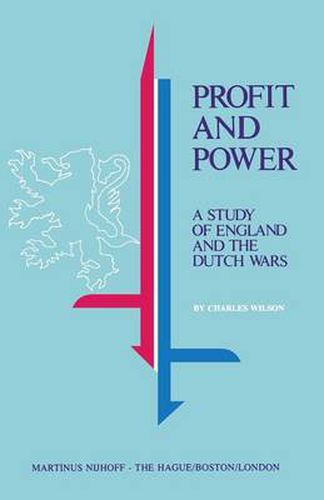Readings Newsletter
Become a Readings Member to make your shopping experience even easier.
Sign in or sign up for free!
You’re not far away from qualifying for FREE standard shipping within Australia
You’ve qualified for FREE standard shipping within Australia
The cart is loading…






This title is printed to order. This book may have been self-published. If so, we cannot guarantee the quality of the content. In the main most books will have gone through the editing process however some may not. We therefore suggest that you be aware of this before ordering this book. If in doubt check either the author or publisher’s details as we are unable to accept any returns unless they are faulty. Please contact us if you have any questions.
Historical explanations need to keep step with the march of research if they are not to degenerate into empty cliches. It has long been a commonplace of 17th century history that the Anglo-Dutch Wars were the product of ‘commercial rivalry’. This essay, first published twenty years ago, attempted to analyse and redefine this overworked traditional concept so as to explain more precisely how it led to naval wars between the Dutch and the English. Two idees fixes of contemporary English thought seemed especially significant; one was the persistent consciousness of English inferiority and backwardness in economic affairs when compared with the Dutch; the other, compounding this, was the equally persistent conviction that strategically, England seemed well placed to wreck the Dutch maritime economy and bring the Republic to her knees in a naval war. These obsessive beliefs combined naturally with the specific influences and motives of powerful political and commercial lobbies to stoke the fires of aggression. Failing over several decades to make any visible progress by more or less peaceful policies, they turned, first, to economic warfare by means of propaganda and pseudo-legal claims to maritime sovereignty; finally (in 1652) to all-out eco nomic and naval warfare.
$9.00 standard shipping within Australia
FREE standard shipping within Australia for orders over $100.00
Express & International shipping calculated at checkout
This title is printed to order. This book may have been self-published. If so, we cannot guarantee the quality of the content. In the main most books will have gone through the editing process however some may not. We therefore suggest that you be aware of this before ordering this book. If in doubt check either the author or publisher’s details as we are unable to accept any returns unless they are faulty. Please contact us if you have any questions.
Historical explanations need to keep step with the march of research if they are not to degenerate into empty cliches. It has long been a commonplace of 17th century history that the Anglo-Dutch Wars were the product of ‘commercial rivalry’. This essay, first published twenty years ago, attempted to analyse and redefine this overworked traditional concept so as to explain more precisely how it led to naval wars between the Dutch and the English. Two idees fixes of contemporary English thought seemed especially significant; one was the persistent consciousness of English inferiority and backwardness in economic affairs when compared with the Dutch; the other, compounding this, was the equally persistent conviction that strategically, England seemed well placed to wreck the Dutch maritime economy and bring the Republic to her knees in a naval war. These obsessive beliefs combined naturally with the specific influences and motives of powerful political and commercial lobbies to stoke the fires of aggression. Failing over several decades to make any visible progress by more or less peaceful policies, they turned, first, to economic warfare by means of propaganda and pseudo-legal claims to maritime sovereignty; finally (in 1652) to all-out eco nomic and naval warfare.